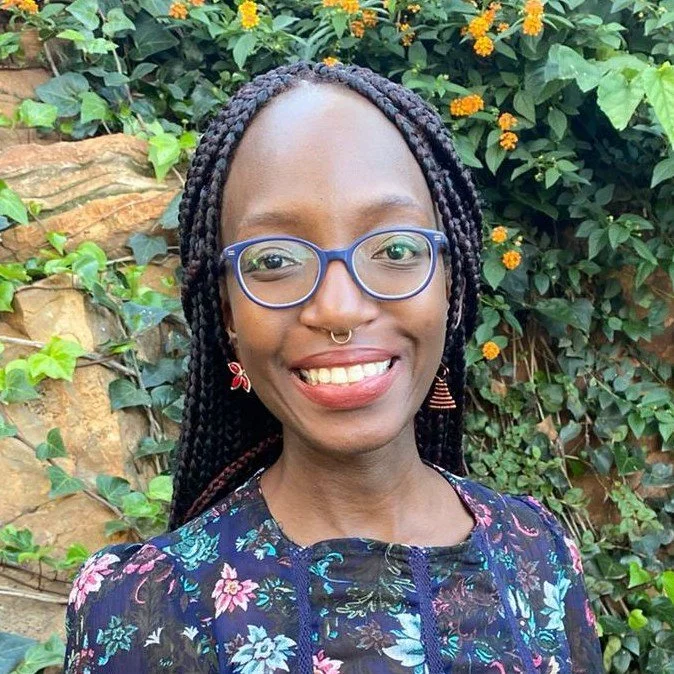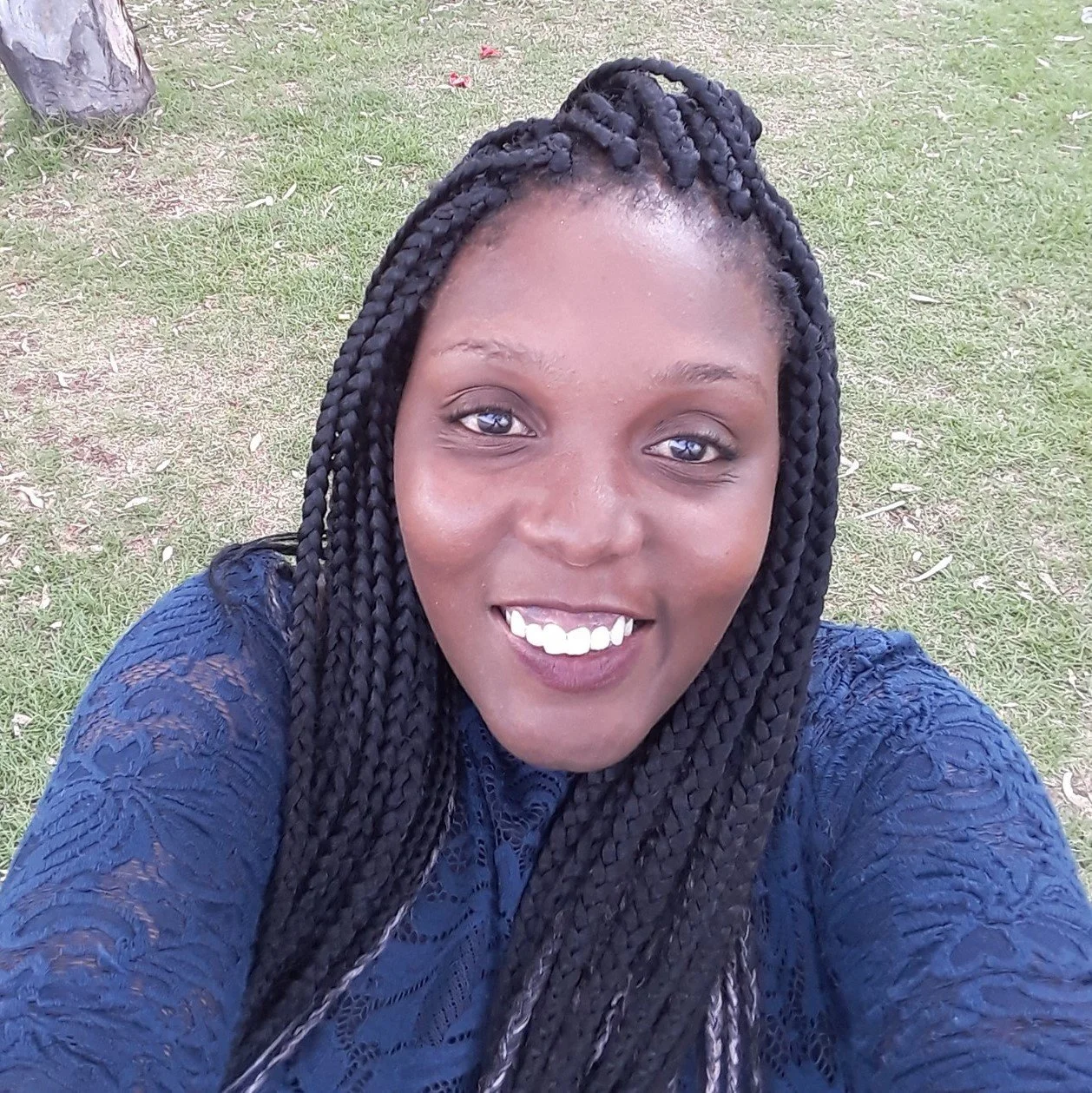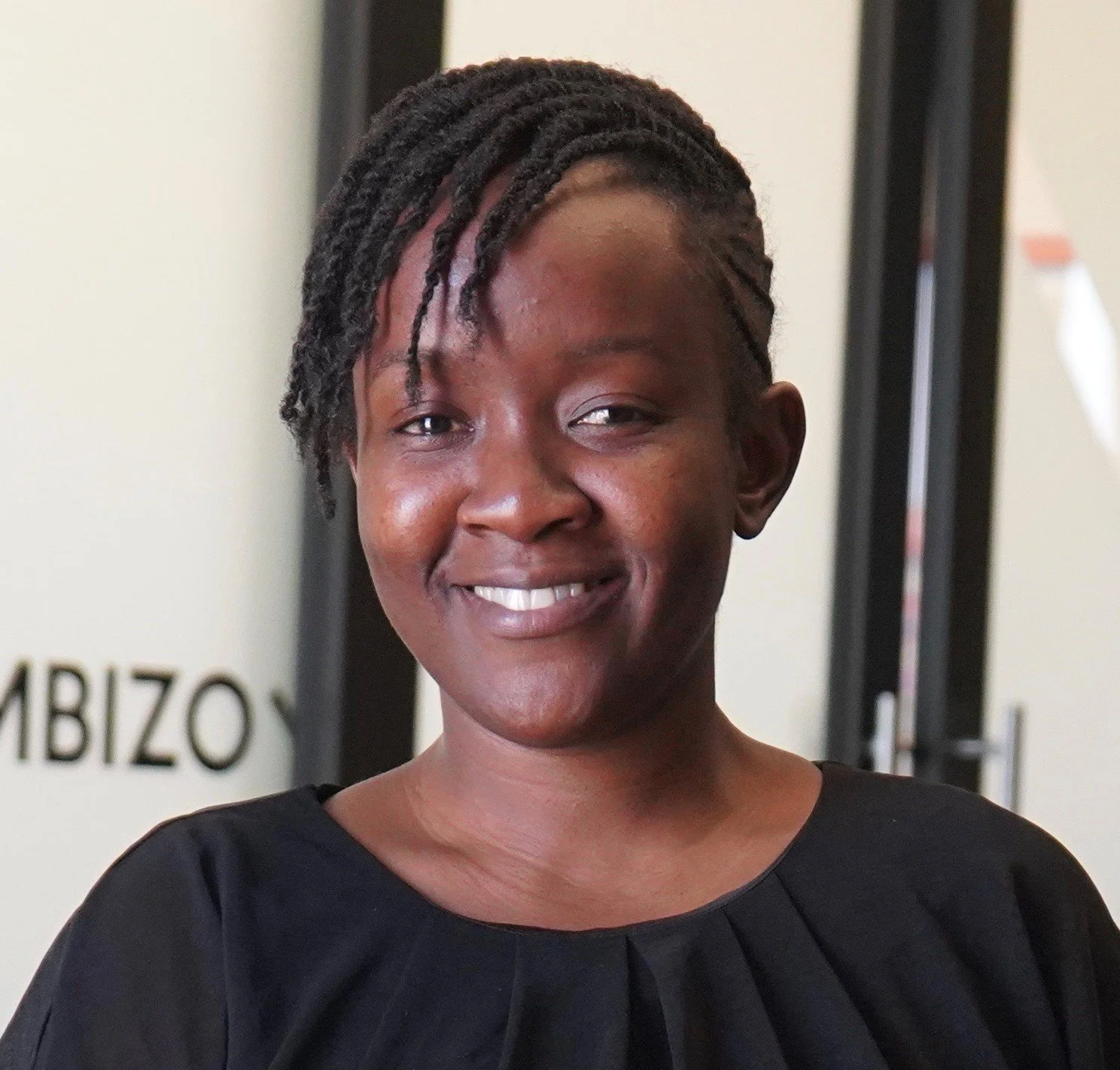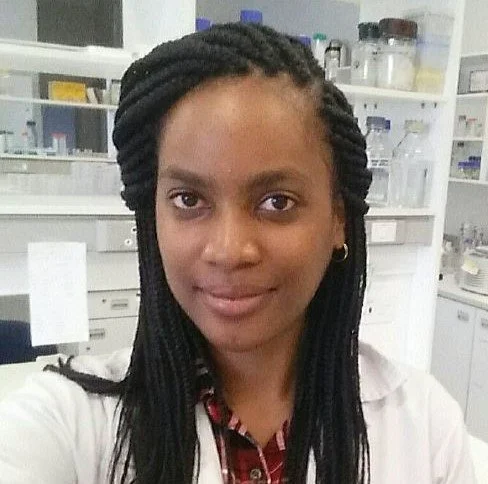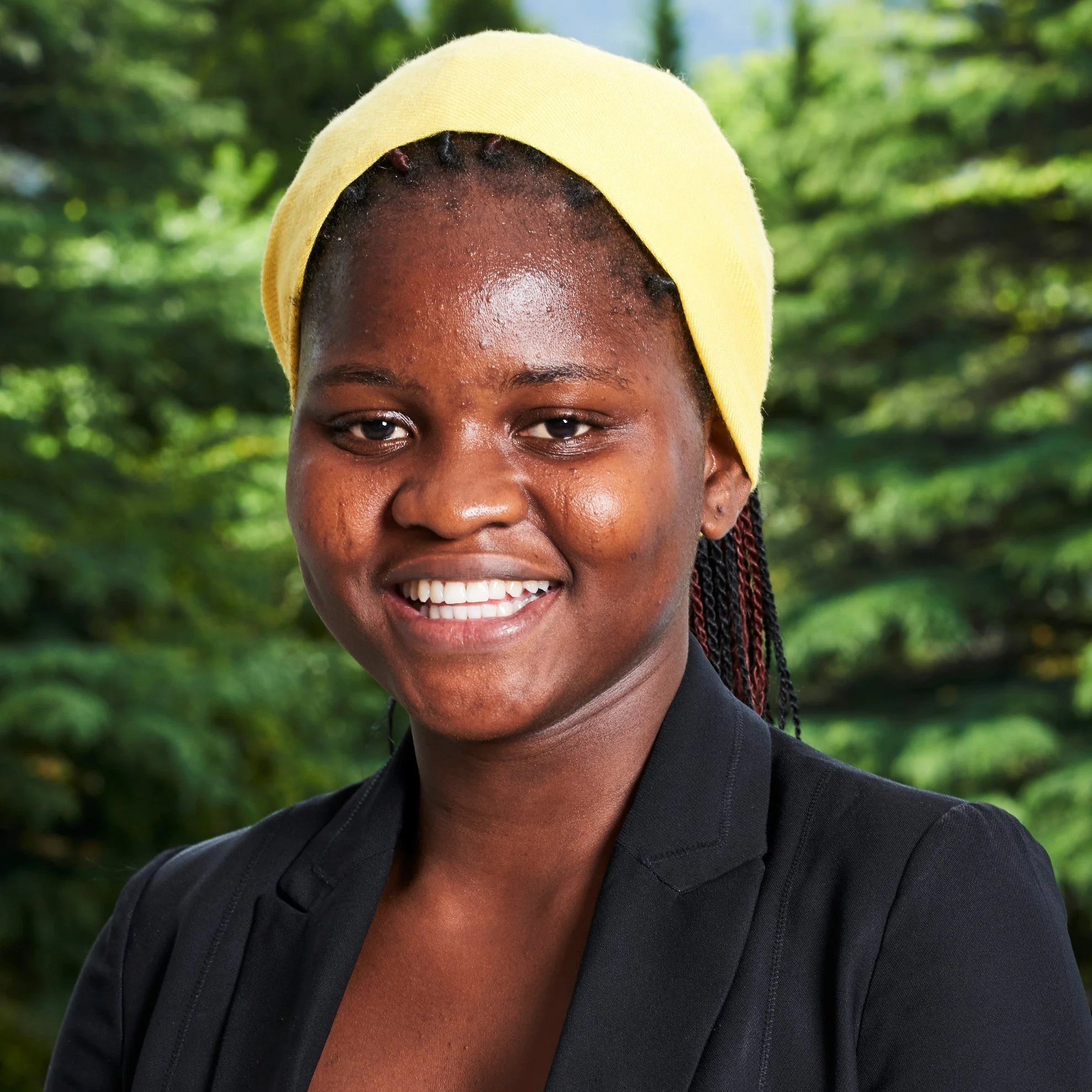Gorata Chengeta, from Botswana, is a PhD student in the Department of African Literature at the University of the Witwatersrand. During her undergraduate studies at Rhodes University, she became involved in gender advocacy and anti-rape activism. Her experiences as an activist moved her to explore black women’s experiences of sexual consent in her master’s research. Building on this, her PhD research aims to expand ideas of sexual violence and amplify community-based interventions to support survivors of sexual violence. As a scholar, she is interested in people’s narratives, in their emotional lives and in holding space for their experiences.
She has multiple career aspirations: to continue researching sexual violence, to work as a lecturer and teach courses on the politics of gender and sexuality, and, finally, to work as a policy consultant, using her research to create survivor-centered anti-rape policies.
Having previously studied journalism, Gorata remains driven to share knowledge and foster connections between people through storytelling. She works as a freelance writer and has written about feminist activism and sexual violence for various media publications. She also writes social commentary and curates an archive of anti-rape activism at South African universities on her blog: https://goratachengeta.wordpress.com

